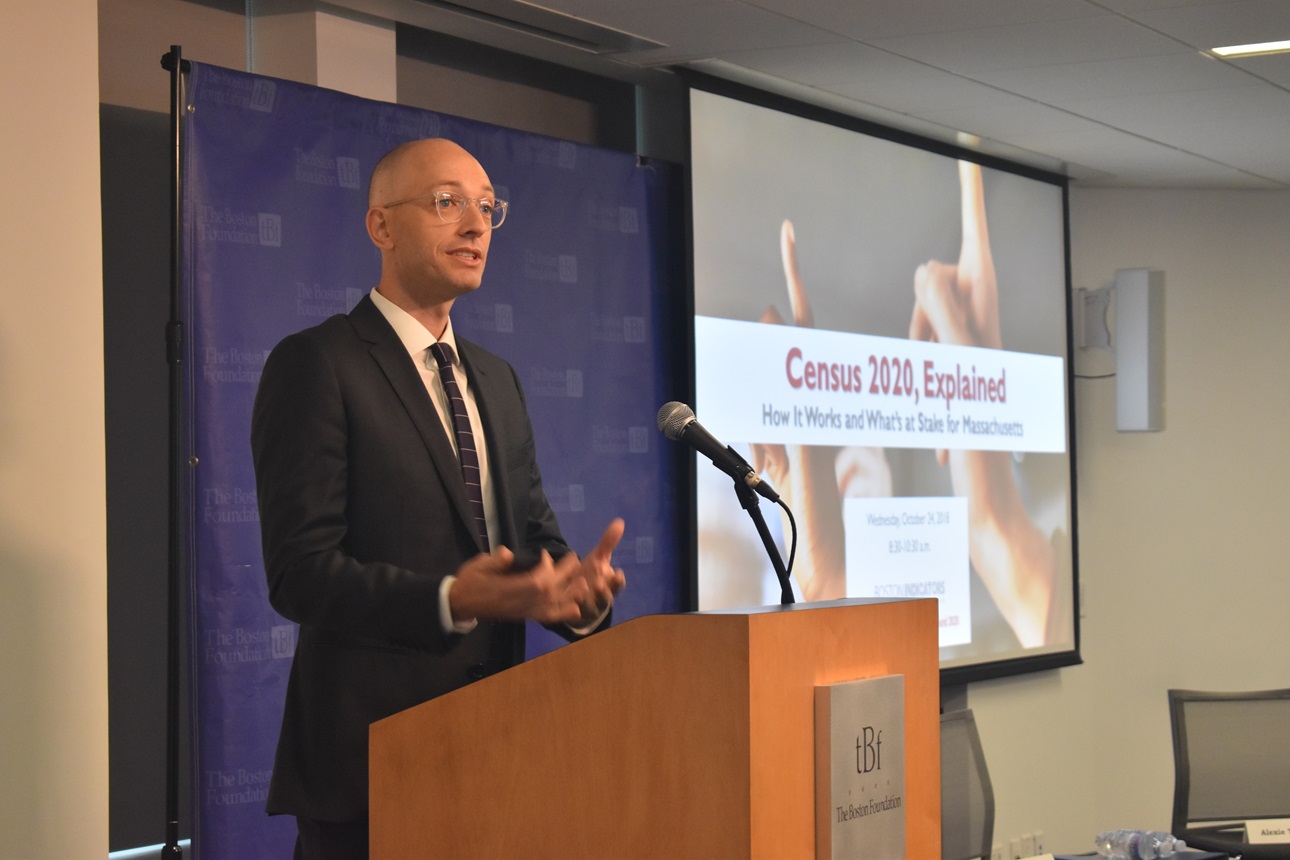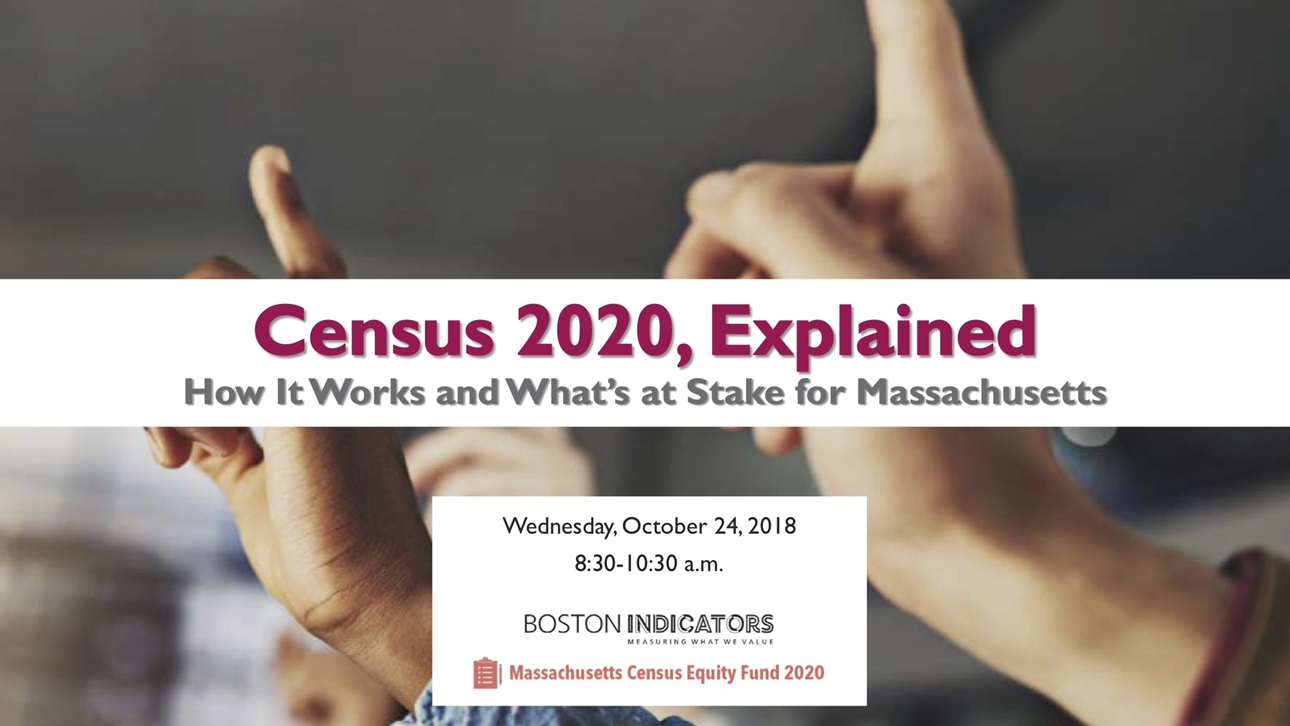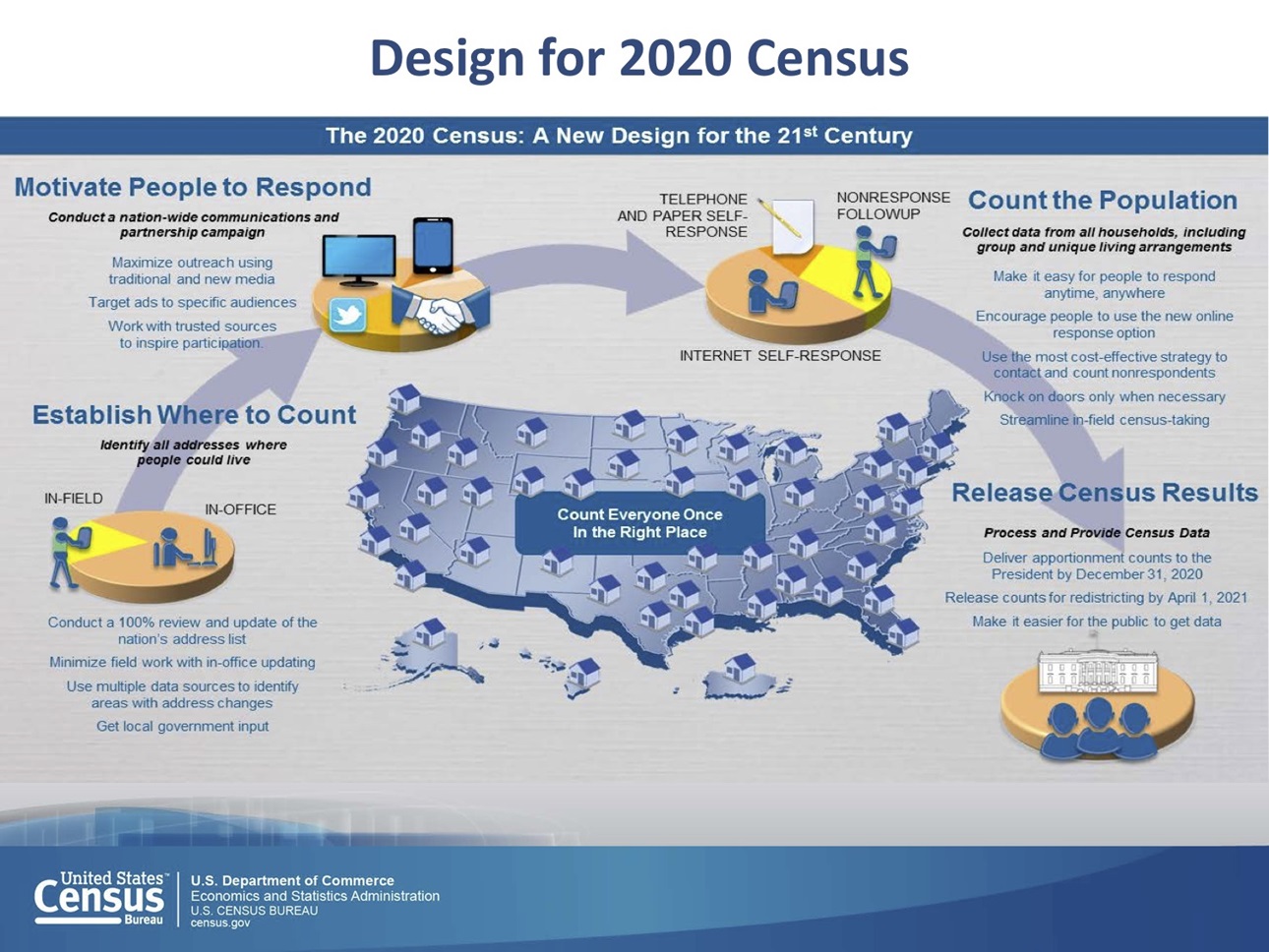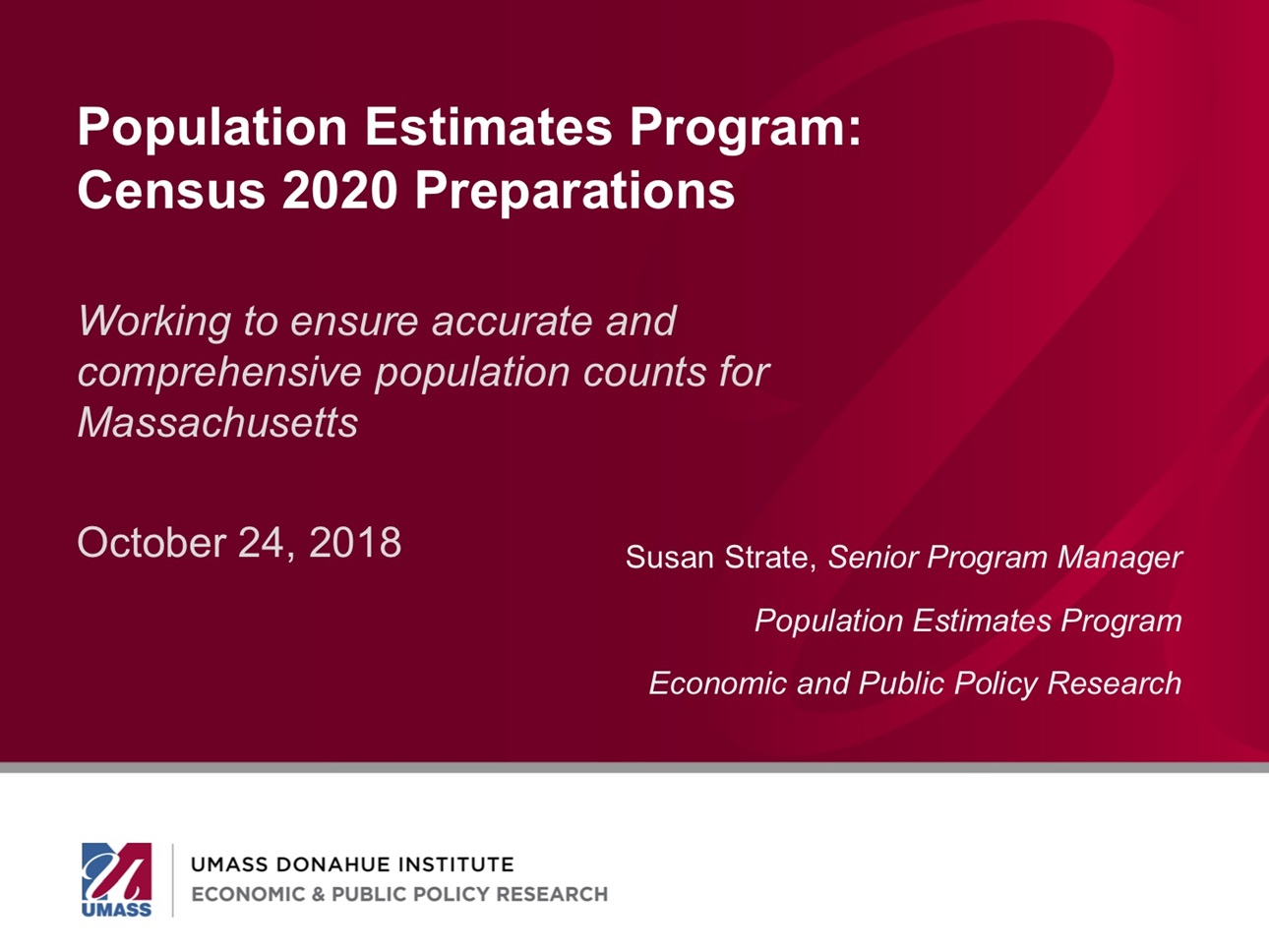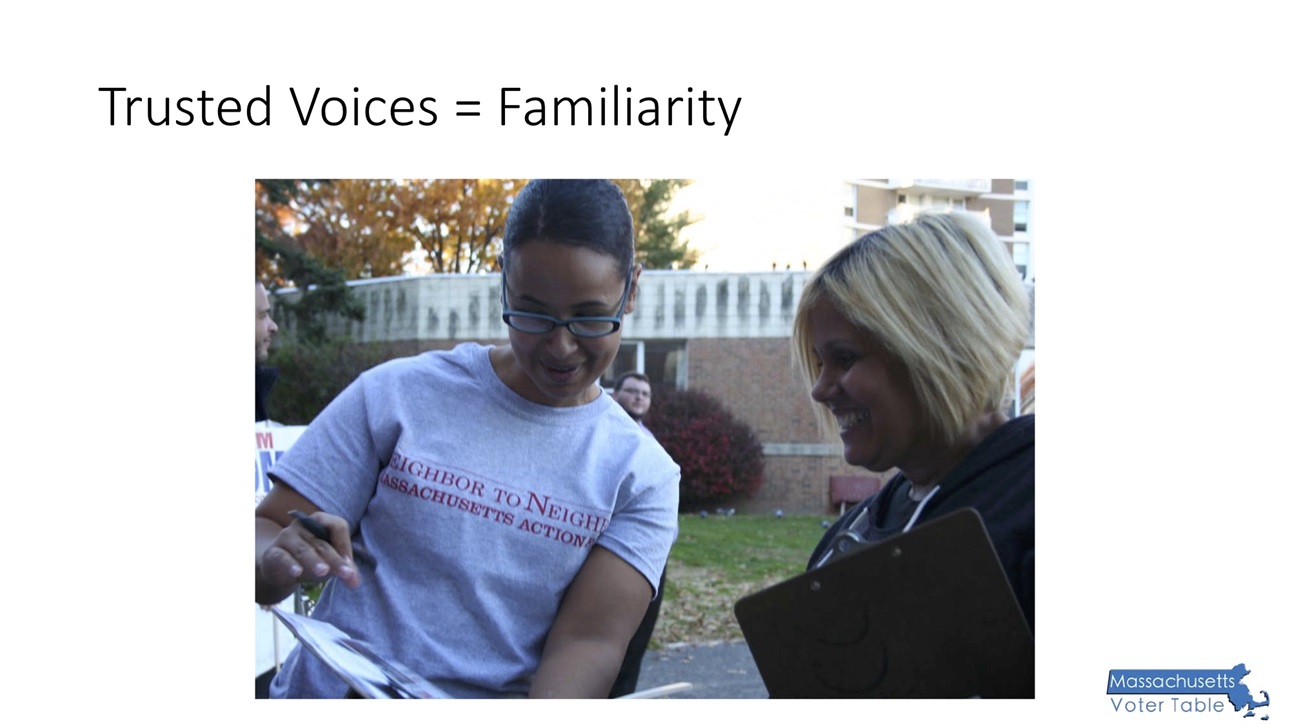Census 2020 Explained
How It Works and What's at Stake for Massachusetts
October 24, 2018
Massachusetts not only depends on an accurate census count to help with the proper distribution of an estimated $16 billion per year in federal, state and local funding, it also has some of the hardest cities in the nation to count accurately, according to data in a new report released October 24 at the Edgerley Center for Civic Media at the Boston Foundtion
The report, Census 2020, Explained: How It Works and What’s at Stake for Massachusetts, was produced by Boston Indicators in partnership with the Massachusetts Census Equity Fund to capture both the importance of an accurate census count and the challenges facing the Census Bureau as they prepare and administer the 2020 U.S. Census count. The report finds that low funding and delayed preparation for the 2020 count, coupled with questions that may discourage immigrants and other groups from participating, could exacerbate issues with low return rates in many Massachusetts cities, including Boston.
“The Census doesn’t just serve the practical purpose of determining funding and voting districts,” said Luc Schuster, Director of Boston Indicators. “It also drives research on multiple levels that defines who we are as a nation – demographically, socially and economically. The questions we ask and don’t ask – and the responses we get and don’t get – drives decision-making in the public, nonprofit and private sectors in dozens of ways every day.”
Boston Indicators Director Luc Schuster opened the proceedings with an overview of the data and narrative of the report, setting the stage for a series of presentations by the members of the panel discussion on the census and its importance to the state. The panel, which was moderated by Alexie Torres-Fleming, Chair, Massachusetts Census Equity Fund, included Jeff Behler, the director of the New York regional office of the Census, which oversees the count in the New England states. He was joined by Beth Huang, Director of Massachusetts Voter Table and Susan Strate, Senior Program Manager of the Population Estimates Program, at the UMass Donahue Institute.
View an online version of the report here from Boston Indicators
Behler acknowledged some of the political issues facing census administrators this year, particularly around the introduction of a new citizenship question on the 2020 Census that is being challenged in court. Nonetheless, he expressed optimism that an accurate count was possible with the cooperation of nonprofit and community partners. Behler highlighted the efforts the Census was putting into place in the coming months to prepare people to participate in the online responses to mail outreach, in an effort to reduce the number of people who need to be tracked down individually at a cost of over $100 per response.
Huang, Strate and numerous members of the audience highlighted both the importance of accurate data and the numerous issues working against an accurate count in 2020, including a distrust of the political motives of the Trump administration, the low levels of funding for the Census in the months leading up to the count, and the inherent challenges of counting a population with a large number of college students, renters, non-family households and immigrants / Non-English language speakers, all of whom have lower response rates than their peers to Census requests.
Agenda
Welcome & Opening Remarks
Jennifer Aronson, Associate Vice President for Programs, The Boston Foundation
Presentation of Report
Luc Schuster, Director, Boston Indicators
Panel Discussion with Q&A
Alexie Torres-Fleming, Chair, Massachusetts Census Equity Fund; Executive Director, Access Strategies Fund, Moderator
Jeff Behler, Director, New York Regional Office (includes Massachusetts), US Census Bureau
Beth Huang, Director, Massachusetts Voter Table
Susan Strate, Senior Program Manager, Population Estimates Program, UMass Donahue Institute; Member, Federal-State Cooperative for Population Estimates (FSCPE) Steering Committee

